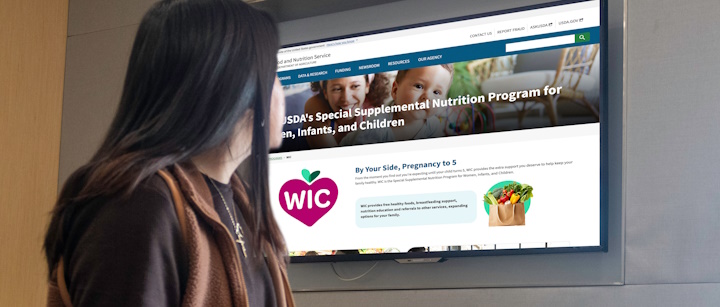WIC Program Faces Challenges Amid Government Shutdown

As the partial government shutdown in the United States extends into its second week, vital federal programs like the Special Supplemental Nutrition Program for Women, Infants, and Children (WIC) are confronted with potential funding crises. Approximately 7 million low-income women, infants, and children who rely on this critical food assistance program may soon find their access to vital nutritional support in jeopardy.
The shutdown has sparked intense debate among lawmakers, with both parties attempting to place blame on one another. An exploration of public sentiment reveals a divided electorate on who is at fault, but there is a consensus that WIC’s funding is precarious.
Vice President JD Vance recently highlighted the implications of the shutdown during a Cabinet meeting, suggesting that leaders in the Senate, specifically Chuck Schumer, have hindered the funding necessary to support this essential initiative. In contrast, several Democratic legislators utilize social media platforms to underscore the detrimental effects of the shutdown on American families, attributing the financial predicament of WIC to Republicans’ reluctance to negotiate and reach an agreement.
Congress is embroiled in a complex negotiation process, as efforts have emerged from House Republicans to temporarily extend government funding through a continuing resolution. This plan, however, has been met with resistance from Senate Democrats, who are advocating for a more comprehensive funding package that would also safeguard health insurance subsidies and address recent Medicaid changes.
WIC, funded through discretionary federal funds—unlike mandatory programs such as Social Security—requires timely appropriations from Congress. Recent USDA data indicates that approximately 6.9 million individuals were enrolled in WIC as of May 2023. The program offers critical food, nutrition education, and breastfeeding support to eligible low-income mothers and young children who are experiencing nutritional risk.
To combat the impending funding shortfall, the Trump administration has proposed utilizing tariff revenues derived from imported goods as a temporary solution. Specifically, around 0 million is earmarked from these tariff revenues to support WIC through the end of October. This strategy, while a stopgap, emphasizes the administration’s commitment to ensuring that vulnerable families do not face food insecurity.
Despite these measures, the National WIC Association (NWA) has expressed concerns about the sustainability of relying on short-term fixes. They emphasize the urgent need for Congress to provide long-term funding solutions to maintain the integrity and operational capability of the program. As the political standoff continues, House Democrats are pushing for a legislative proposal that would designate WIC as a mandatory federal program, thereby shielding it from future disruptions through government shutdowns.
In summary, the ongoing partial government shutdown presents complex challenges to WIC and similar programs that play a critical role in supporting low-income families. Stakeholders from both sides of the aisle are urged to prioritize the welfare of nearly 7 million Americans dependent on these vital services, as fiscal negotiations unfold in the coming weeks.
#PoliticsNews #HealthNews






